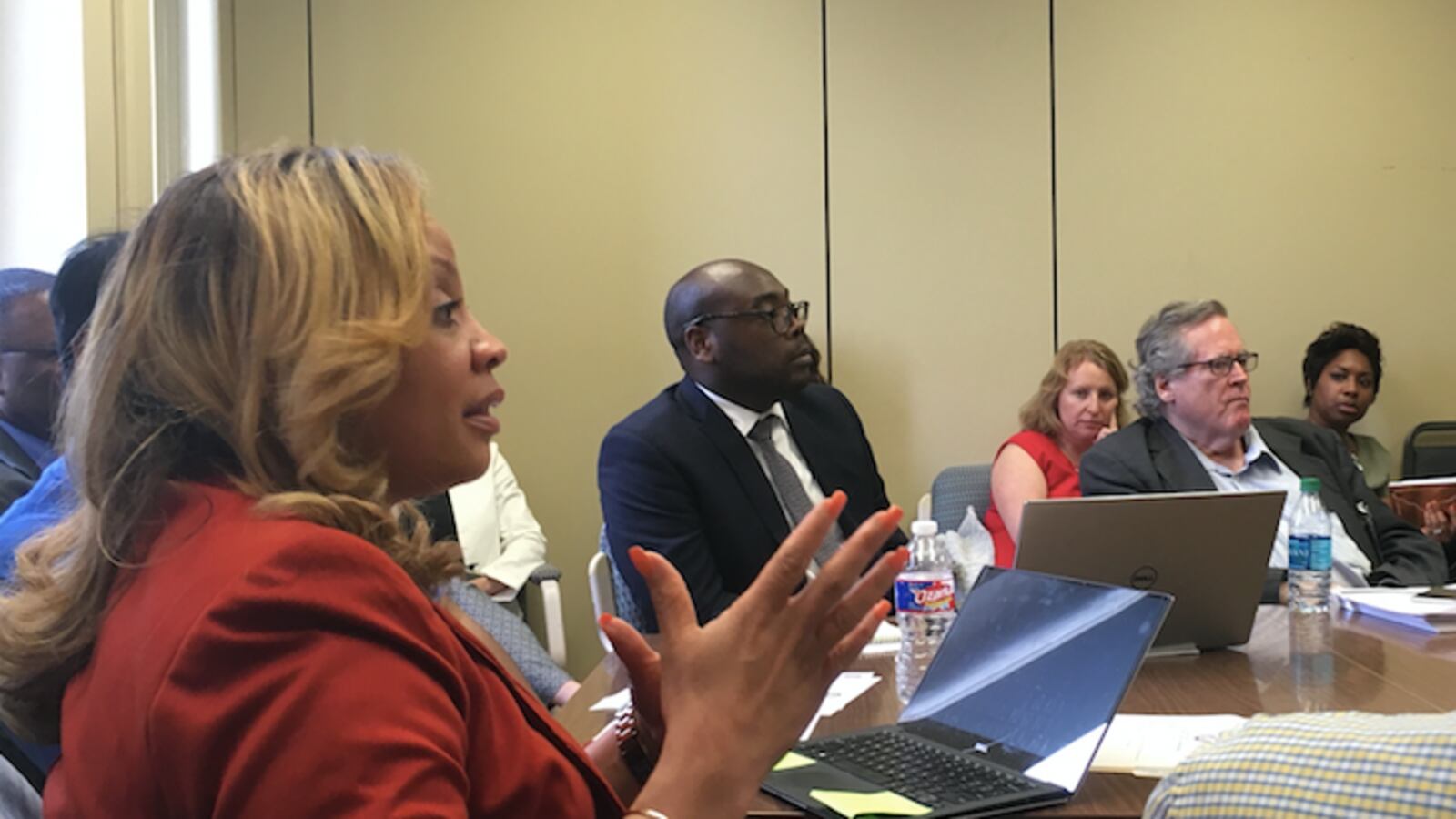Since 2014, Superintendent Dorsey Hopson has tried to establish a merit pay plan for teachers in Shelby County Schools but, for one reason or another, it’s eluded the district.
Now, his team is trying again — and they’ve come up with a proposal that they hope will help Tennessee’s largest district retain its most talented teachers, while also appealing to teachers that previously have balked at shifting to performance-based pay.
The proposal unveiled Tuesday would address inequities in the pay structure that have given higher salaries to newly hired teachers than to existing teachers with the same experience for up to 10 years.
Any subsequent raises would be based on teacher evaluation scores of 3 to 5 on the state’s 1-to-5 model, which is based on classroom observations and student test scores.
The plan also would resurrect additional compensation for job-related advanced degrees — but only in the form of bonuses if the teachers rate 4 or 5. The same goes for hard-to-staff teaching positions such as in special education, math and science, as well as veteran teachers who have reached the district’s maximum salary, which would go from $72,000 to $73,000.
The overhaul would take effect next school year using $10.7 million earmarked in Hopson’s proposed $945 million spending plan for 2017-18. The school board is scheduled to vote on the budget in April.
Recruiting and retaining effective teachers is a high priority as Shelby County Schools seeks to boost test scores in low-performing schools with many poor students. And research shows teachers have the most influence on student achievement.
Trinette Small, chief of human resources, said the district has to keep its pay structure competitive to retain its most effective teachers, especially with six municipal school systems nearby.
“This is trying to get base pay stabilized,” Small told school board members during a budget review session. “This is an investment in teachers but this is something we can afford.”
In exit surveys, a fourth of high-performing teachers cited noncompetitive pay as their reason for leaving the district, she said. And most who left had the second-highest evaluation score.
The plan pleased school board members, and parts of it appeared to appeal to teachers unions, although its leaders still had some concerns.
Chairman Chris Caldwell said the new structure positions the district for a more stable learning environment.
“The big point about the change was to have (pay) merit-based and not just longevity-based because at a certain point, they plateau,” Caldwell said. “The main thing we got to worry about is student draining and teacher draining.”
School board member Mike Kernell said the plan should boost teacher morale by addressing inequities in the system. “I think by resetting this, we’re going to start seeing more experienced teachers at the right level starting to help the younger teachers without the resentment that you’re making $2,000 less,” he said
Tikeila Rucker, president of the United Education Association of Shelby County, was mostly pleased with the proposal but took issue with tying pay for advanced degrees with evaluation scores. Teachers should be rewarded in their base pay for advanced degrees, not through bonuses, she said.
Rucker and Keith Williams, executive director of the Memphis-Shelby County Education Association, both said the initial leveling up should apply to all teachers on the former step schedule up to 17 years, instead of stopping at 10.
“If you’re going to abandon the schedule system, at least level everyone up,” Williams told Chalkbeat. “If it’s not going to benefit everybody, you might as well throw it in the trash.”
Small said the leveling up is meant to make teacher pay competitive with new hires. Since the district only incorporates up to 10 years of experience in pay for new teachers, the leveling up was limited to the same.
The New Teacher Project provided consultation on the district’s pay plan by gathering data, conducting focus groups and crafting the compensation model.
Editor’s note: This story has been updated to show the district proposes to level up pay up to 10 years of experience.

